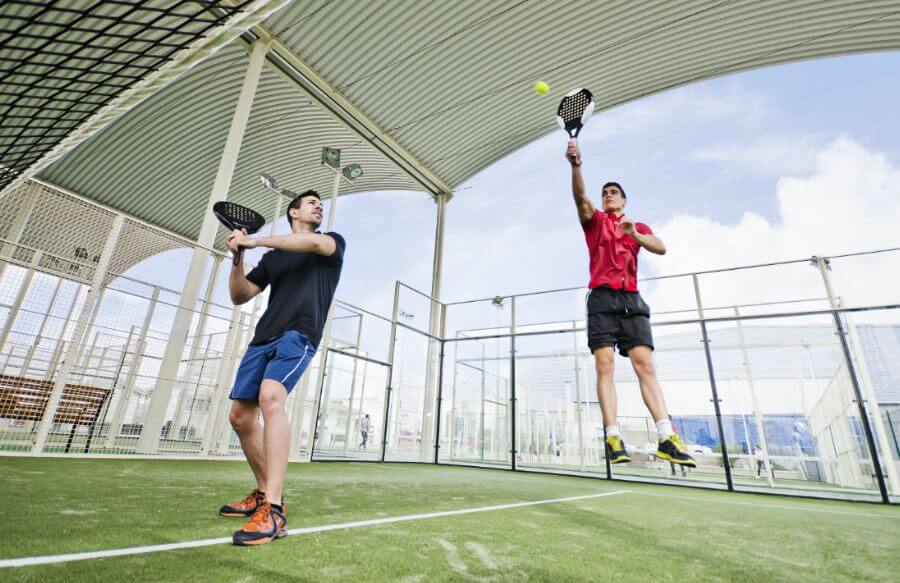The Mental Challenges of Sports

Sports are very demanding activities, not only for the body but also for the mind. During a competition, an athlete must be able to respond quickly to many different mental challenges and difficulties. Therein lies the importance of psychological work in sports as an addition to physical or tactical work.
Many times, an athlete does all this mental work without even being aware of it. However, that doesn’t mean that it doesn’t exist. The tiredness athletes feel after competing comes in part from being physically drained and also from mental fatigue. Thus, the latter should be given the same attention as the former.
There are innumerable mental challenges in sports. In this article, we’ll tell you about the most common ones and those that tend to give athletes the most problems.
Making decisions quickly in an unpredictable environment
Decision-making is a process that can make the difference between winning and losing. A bad decision at the wrong time can make an athlete lose, be disqualified, or, in the worst-case scenario, become injured.
An athlete has to make decisions based on their performance. Nevertheless, they also have to predict what their opponent is going to do and anticipate their reaction. That’s when decision-making becomes complicated because it’s very difficult to try and figure out the opponent’s decisions.
Training decision-making requires the control of other psychological variables: perception, attention, and memory, among others. Therefore, before moving on to training this complex process, you should start by consolidating those psychological skills.

Mental challenges: staying focused for long periods of time
Sports require a great attention span for long periods of time. Competitions can go on for hours without any breaks and, during that time, the athlete has to stay focused and avoid distractions.
This ability goes beyond the very limits of the mind. As a general rule, a person can stay focussed for 50 minutes. After that time, fatigue begins to appear and it becomes increasingly difficult to stay attentive. Cognitive resources are limited, and they need to disconnect to be able to become focused once again.
A simple way to get the most out of your attention span is knowing how to manage your rest periods. Learning to disconnect and clear your mind helps you face the task at hand with a new and improved attitude.
Coping with negative emotions
Every athlete has experienced sweet and sour moments during their career. Sports are a reflection of life. They have their happy moments, but there are also unpleasant situations to deal with. Both are inevitable and natural.
However, although you can’t control many of them, you do have power over the way you face them. Therefore, the ability to manage negative emotions is an essential part of sports psychology.
The first step in regulating these emotions is to label and know the emotional state. Once you do this, you can apply relaxation or emotional expression techniques that can help stabilize you.
Mental challenges: staying motivated throughout the season
Motivation is the fuel of sports. It’s the psychological variable that influences behavioral initiation, maintenance, and change. A highly-motivated athlete will be more likely to push themselves and give their best.
Traditionally, experts distinguish between intrinsic motivation, when someone does an activity because it’s pleasurable in itself, and extrinsic motivation when someone plays a sport to get an external reward.

Although both types of motivation can make an athlete work hard, intrinsic motivation is more stable. In the case of extrinsic motivation, when the reward disappears, so will the motivation.
Psychological preparation is essential
In the same way that sports require a remarkable level of physical fitness, good psychological preparation is needed to reach maximum performance. Even if there are unpredictable obstacles, the best preparation to face them is to anticipate them and have the resources in advance to address them as soon as possible.
In short, although it’s true that there are countless mental challenges in sports, they’re all closely related to each other. Due to this, learning to manage one will allow you to acquire skills that you can use for another. Take the time to train your mind!
Sports are very demanding activities, not only for the body but also for the mind. During a competition, an athlete must be able to respond quickly to many different mental challenges and difficulties. Therein lies the importance of psychological work in sports as an addition to physical or tactical work.
Many times, an athlete does all this mental work without even being aware of it. However, that doesn’t mean that it doesn’t exist. The tiredness athletes feel after competing comes in part from being physically drained and also from mental fatigue. Thus, the latter should be given the same attention as the former.
There are innumerable mental challenges in sports. In this article, we’ll tell you about the most common ones and those that tend to give athletes the most problems.
Making decisions quickly in an unpredictable environment
Decision-making is a process that can make the difference between winning and losing. A bad decision at the wrong time can make an athlete lose, be disqualified, or, in the worst-case scenario, become injured.
An athlete has to make decisions based on their performance. Nevertheless, they also have to predict what their opponent is going to do and anticipate their reaction. That’s when decision-making becomes complicated because it’s very difficult to try and figure out the opponent’s decisions.
Training decision-making requires the control of other psychological variables: perception, attention, and memory, among others. Therefore, before moving on to training this complex process, you should start by consolidating those psychological skills.

Mental challenges: staying focused for long periods of time
Sports require a great attention span for long periods of time. Competitions can go on for hours without any breaks and, during that time, the athlete has to stay focused and avoid distractions.
This ability goes beyond the very limits of the mind. As a general rule, a person can stay focussed for 50 minutes. After that time, fatigue begins to appear and it becomes increasingly difficult to stay attentive. Cognitive resources are limited, and they need to disconnect to be able to become focused once again.
A simple way to get the most out of your attention span is knowing how to manage your rest periods. Learning to disconnect and clear your mind helps you face the task at hand with a new and improved attitude.
Coping with negative emotions
Every athlete has experienced sweet and sour moments during their career. Sports are a reflection of life. They have their happy moments, but there are also unpleasant situations to deal with. Both are inevitable and natural.
However, although you can’t control many of them, you do have power over the way you face them. Therefore, the ability to manage negative emotions is an essential part of sports psychology.
The first step in regulating these emotions is to label and know the emotional state. Once you do this, you can apply relaxation or emotional expression techniques that can help stabilize you.
Mental challenges: staying motivated throughout the season
Motivation is the fuel of sports. It’s the psychological variable that influences behavioral initiation, maintenance, and change. A highly-motivated athlete will be more likely to push themselves and give their best.
Traditionally, experts distinguish between intrinsic motivation, when someone does an activity because it’s pleasurable in itself, and extrinsic motivation when someone plays a sport to get an external reward.

Although both types of motivation can make an athlete work hard, intrinsic motivation is more stable. In the case of extrinsic motivation, when the reward disappears, so will the motivation.
Psychological preparation is essential
In the same way that sports require a remarkable level of physical fitness, good psychological preparation is needed to reach maximum performance. Even if there are unpredictable obstacles, the best preparation to face them is to anticipate them and have the resources in advance to address them as soon as possible.
In short, although it’s true that there are countless mental challenges in sports, they’re all closely related to each other. Due to this, learning to manage one will allow you to acquire skills that you can use for another. Take the time to train your mind!
All cited sources were thoroughly reviewed by our team to ensure their quality, reliability, currency, and validity. The bibliography of this article was considered reliable and of academic or scientific accuracy.
- Leal, J. P., y Sillero, J. D. D. B. (2010). Fundamentos teóricos y aplicación práctica de la toma de decisiones en el deporte. E-balonmano. com: Revista de Ciencias del Deporte, 6(2), 101-110.
This text is provided for informational purposes only and does not replace consultation with a professional. If in doubt, consult your specialist.








